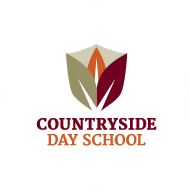In recent years, some families have considered transitioning to the local public school after fifth grade due to concerns about social integration. However, research suggests that staying in a consistent, child-centered program through sixth grade fosters deeper social confidence, collaboration skills, and enhanced emotional resilience.
Montessori elementary classrooms, with their mixed-age communities and purposeful teamwork, prepare children to form lasting relationships, navigate conflict, and step confidently into new environments when the time... READ MORE
At this time of year, many families pause to reflect — not just on schedules and logistics, but on what kind of learning environment truly supports their child’s growth. At Countryside, those reflections often return to something essential: a place where each child is seen, understood, and valued as an individual.
Rooted in Montessori philosophy, our classrooms are intentionally designed to move away from a one-size-fits-all model of education. Children are not... READ MORE
In just 11 minutes and 44 seconds, Montessori Method: Education for Life beautifully highlights the core of Montessori education. Rather than preparing children for a specific job, the method focuses on preparing them for life's unpredictability.
Montessori classrooms are not about teaching through instructions; they’re about guiding children at their own pace, with something meaningful for everyone. Each child’s unique journey is valued, and every member of the community—students, teachers, and parents—plays... READ MORE
As winter break settles in, many parents feel a familiar pressure: How do I keep my child engaged? Productive? Busy?
I want to gently offer a different invitation—be okay with idle time.
Boredom is not a problem to be solved; it is often the doorway to creativity, independence, and deep thinking. When children are given space without constant adult direction or scheduled entertainment, they begin to listen to themselves. They invent,... READ MORE
A child’s relationship with their grandparents is a treasure that shapes their life in ways that are both subtle and profound. Grandparents offer a unique blend of love, wisdom, and patience that often fills a gap in a child’s life. They can be a soft place to land, a listening ear, or a patient teacher, providing a sense of continuity and connection to family history that is priceless.
I’ve seen this firsthand... READ MORE
Lately, I’ve been thinking a lot about what our children are absorbing from the world around them. Not from any one headline or moment—but from the tone, the language, and the way adults handle conflict, mistakes, and responsibility.
Children are extraordinary observers. They notice how we speak when we’re frustrated. They see how we react when something goes wrong. And whether we realize it or not, they are quietly forming their own understanding of... READ MORE
November is a wonderful time to focus on gratitude, especially as families gather to celebrate and reflect. By complementing Montessori practices, such as Grace and Courtesies, we can help children develop a deeper understanding of gratitude.
Modeling Gratitude
Children learn best through observation. Show them what gratitude looks like by expressing thanks in everyday situations—whether it's thanking a family member for dinner or acknowledging a friend's help. Your actions set a... READ MORE
Did you know that our 3–6 (Primary) teachers regularly visit the local public schools? We don’t go because we’re preparing our children for traditional kindergarten—we aren’t. We go because we want to understand what parents believe they are choosing when they consider leaving Montessori early, and equally, what their children may lose by stepping out before the cycle is complete.
Year after year, when families decide to leave the 3–6 program early, many return... READ MORE
For many parents, the morning carpool is a daily ritual—a blend of chaos, camaraderie, and, yes, a dash of nostalgia. Most of you might be too young to recall the classic scene from Mr. Mom, where Michael Keaton's character finds himself reprimanded for navigating the carpool lane incorrectly. This comedic moment has become a part of film lore, but it also carries a deeper connection to our very own school community.
Legend... READ MORE
This past weekend, Jim and I had the pleasure of visiting our son, who’s now living in the breathtaking landscapes of Jackson Hole, Wyoming. This region is stunning, with its rugged mountains and pristine rivers—a perfect backdrop for reflection and observation.
As a teacher, I often have found myself watching children and their behaviors, picking up on various parenting styles in the process. It’s fascinating how environment and culture shape the way... READ MORE
Countryside Programs
We offer a continuous program from 16 months through 6th grade — inculding an all year program option for Pre-K/K and elementary school. LEARN MORE
TODDLER — Ages 16 mos.-3yrs
PRE-K/K — Ages 3-6
LOWER ELEMENTARY — Ages 6-9, Grades 1-3
UPPER ELEMENTARY — Ages 9-12, Grades 4-6
SUMMER PROGRAMS — Ages 16 mos.-12 yrs., Toddler-Grade 6
ALL YEAR FULL DAY — Ages 3-12, Grades Pre-K/K-Grade 6











